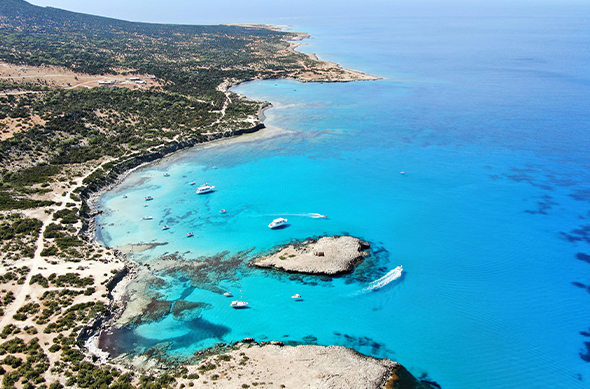
Cyprus Study Visa
To study in Cyprus as an international student, you'll need to obtain a student visa or residence permit, depending on the duration of your studies. Here's a detailed guide on the requirements and procedures for obtaining a study visa for Cyprus:
Why Study in Cyprus?
- Quality Education: Cyprus offers high-quality education with several universities and colleges accredited internationally.
- Cultural Diversity: Cyprus is a melting pot of cultures, offering a rich and diverse cultural experience for international students.
- Affordable Tuition Fees: Compared to many other European countries, tuition fees in Cyprus are relatively affordable.
- English Language: Many programs are taught in English, making it an attractive destination for English-speaking students.
- Safe Environment: Cyprus is known for its safety and welcoming environment for international students.
- Strategic Location: Situated at the crossroads of Europe, Asia, and Africa, Cyprus provides easy access to travel within and outside the continent.
- Mediterranean Climate: With its mild winters and warm summers, Cyprus offers a pleasant climate conducive to studying and leisure activities.
Procedure for Obtaining a Cyprus Study Visa:
- Submit your visa application to the Cyprus embassy or consulate in your home country or the country where you legally reside. Ensure you apply well in advance of your intended travel date.
- Some applicants may be required to attend an interview as part of the visa application process.
- The processing time for a Cyprus study visa can vary, so it's advisable to apply as early as possible.
- Once your application is processed, you'll be notified of the decision. If approved, you'll receive your visa or residence permit.
- After receiving your visa, you can travel to Cyprus within the validity period of your visa.
Educational Institutions in Cyprus:
- Universities: Cyprus has several universities offering a wide range of undergraduate and postgraduate programs in various fields such as business, engineering, medicine, humanities, and sciences.
- Colleges: There are also numerous colleges and higher education institutions providing vocational and professional training programs.
Working While Studying:
- International students in Cyprus may have the opportunity to work part-time during their studies, usually up to 20 hours per week during the academic year and full-time during scheduled breaks.
- However, restrictions may apply depending on the type of visa or residence permit held.
Language Requirements:
While many programs are taught in English, proficiency in Greek may be beneficial for daily life and interaction within the local community, especially if you plan to stay in Cyprus for an extended period.
